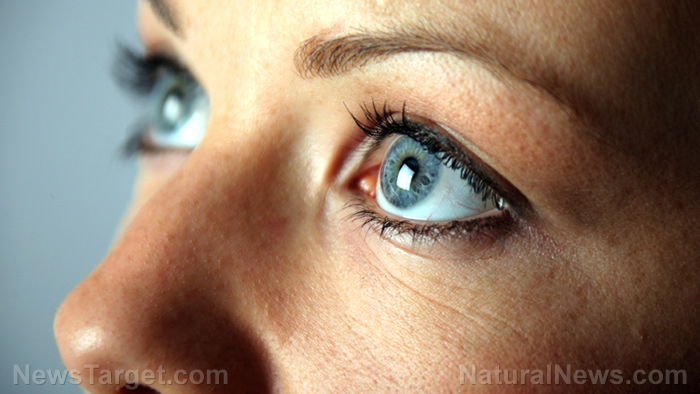Research into light sensitivity shows how the human eye responds to “invisible light,” impacting several important biological functions
11/21/2017 / By Rita Winters

Recent studies on the mammalian eye shed light on why some people have excessive light sensitivity. These new discoveries may contribute to developing effective therapies for individuals who experience migraine headaches and concussions with light sensitivity.
Melanopsin is a protein in the eye that is sensitive to blue light, and establishes our circadian rhythms (day-night cycle). It is found in the retina, a layer of cells that are photosensitive, or reactive to light. These photopigments change shape depending on the type of light they are exposed to, which then triggers chemical reactions and signals the visual cortex of the brain. This process is how we create a picture of the world. When melanopsin cells detect light, less melatonin (the hormone that makes you feel sleepy) is produced, making you feel awake. When melanopsin cells do not detect light (signalling nighttime), more melatonin is produced, hence why we feel sleepy or tired.
Researchers at the University of Pennsylvania’s Perelman School of Medicine and School of Arts and Science created a special type of light that affects only the melanopsin cells. During the study, they measured pupil reactions and brain activity, as well as recorded the subjects’ verbal responses to what they saw. When researchers asked the participants what they saw, people described the melanopsin stimulus as bright and blurry, and also highly uncomfortable. It can be correlated to the fact that looking directly at a bright source of light makes us squint and feel uncomfortable. Some individuals even have physical reactions to bright lights, resulting in severe migraine headaches and in others, epilepsy. The study was conducted in order to better understand the effects of light sensitivity.
Because melanopsin is most sensitive to blue light, using cellphones or computers late at night is a bad idea. These electronic devices produce lots of blue light, and the melanopsin cells interpret it as daylight. This then destroys the natural day-night cycle, or circadian rhythm. Excessive use of electronic, light-emitting devices are to be avoided if you wish to get a proper night’s rest.
Blue light is a type of visible ray that has the highest energy wavelength. This light helps us stay alert daily, and can be naturally obtained from sunlight. Electronic devices, however, produce artificial blue light which can damage the photoreceptors in our retina and can lead to blindness. The effect is cumulative, so longer and frequent exposure to artificial blue lights will lead to the eye’s failure.
Ultraviolet rays are harmful to the skin and eyes, but blue light is more damaging, since it can reach the back part of the eye. This blue light can cause cataracts and other forms of retinal damage. Aside from loss of vision, it can accelerate age-related macular degeneration. Long-term exposure to these artificial rays can cause abnormal hormone secretion, poor heart rates, lack of alertness, and sleep disorders.
While mobile browsing is generally harmless if done in short periods, browsing should be avoided prior to sleep. In today’s modern world, it is difficult to avoid electronic gadgets that emit these artificial lights, especially since computers and smartphones are a requirement in most jobs. However, people can prepare and protect themselves. Some smartphone applications limit the blue light the screens emit, and there are protective covers for desktop monitors that shield your eyes from the harmful rays. It is also suggested to avoid using your phone or computer at least two hours before jumping in bed, in order to signal your melanopsin cells and hence your brain that it is time to sleep.
Some tips for decreasing your exposure to artificial blue lights:
- Plan your day and evening. Make sure to put down your gadgets an hour or two before hitting the sack.
- Switch off your WiFi connection, or set your phone to airplane mode to avoid getting distracted by notifications.
- Keep your phone away from your bed. This also pushes you to stand up in the morning when your alarm rings.
- Unless you’re on-call 24/7, make a habit of being available during a specific time only.
- If you’re using your phone, set the screen brightness to the minimum level.
- Follow the 20-20-20 rule: After 20 minutes of using your phone, take a 20-second break and look at an object 20 feet away.
- Televisions and computers should be outside of your bedroom.
- Lessen the use of gadgets, especially within your family. It will enhance your familial relationships.
Sources include:
Tagged Under: blue light, body clock, Cell Phone Dangers, cellphones, circadian rhythym, EM devices, eye health, hidden dangers, light sensitivity, melanopsin, natural remedies, smart phones




















